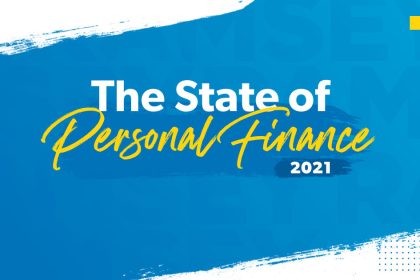Credit Sesame discusses credit report inaccuracies and what happens when you dispute something on your credit reports.
You may be surprised at the number of people who have checked their credit reports and found inaccurate information. Finding a mistake on one or more of your reports can be frustrating, but do you know what to do if you find such an error? What inaccuracies could you find, and what happens when you dispute something on your credit reports?
A surprising number of credit reports contain errors or inaccurate information. These errors are frustrating and can have a negative impact on your score. It is a good idea to take care of them right away. Submitting a dispute to the credit bureau is the first step, but what comes next? And what effect does a dispute have on your credit score? The data in this article is from a survey conducted in September 2018 but the lessons and conclusions are the same in 2024.
Who has inaccuracies on their credit reports?
People with fair and low credit scores tend to have more inaccuracies on their credit reports. That’s around one in three. What the data does not tell you is that these inaccuracies may drag your credit scores down, even if behave responsibly with credit.
| Credit range | Inaccuracies on credit reports |
| Poor | 33% |
| Fair | 29% |
| Good | 33% |
| Very good | 1% |
| Excellent | 0.5% |
Why is disputing errors on your credit reports important?
Your credit scores are a direct reflection of the information contained in your credit reports. Few numbers impact your life as much as your credit scores. Think about it: Your credit score is used to determine so many things. For instance, it determines the interest rates that you pay on your credit cards and loans, whether you can afford to buy a new car, the type of house you can afford, and whether or not you get approved for a new apartment or a new job.
Interest rate ranges for different credit score ranks
Your credit scores impact the rate lenders offer for different kinds of loans. The interest rates for those with poor credit are substantially higher than for those with better credit. For instance, if you’re in the market for a car, you could expect a significantly lower interest rate if you have exceptional credit. However, if you have poor credit, the interest rate for the same loan would be much higher, and that’s even if you can get approved for the loan in the first place.
| Type of loan | Poor credit rate | Fair credit rate | Good credit rate | Very good credit rate | Excellent credit rate |
| 30-year fixed mortgage | 6.4% | 5.6% | 5.2% | 4.8% | 4.5% |
| Car loan | 15.2% | 14.1% | 7.0% | 5.0% | 3.6% |
| Credit card | 24.9% | 17.6% | 14.9% | 12.2% | 13.9% |
Interest rate comparison for excellent and poor credit
What do different interest rates mean in terms of money saved or spent? If you apply for a 30-year fixed mortgage to purchase a $244,368 house, it would benefit you to make sure that your credit is in top shape before turning in those applications. Why? Because with bad credit, the interest rate on your mortgage loan could be several percent points higher than if you have excellent credit. That may not sound like a big difference, but over the course of the mortgage, it adds up to paying nearly $100,000 more for the same house. When dealing with loans, having bad credit can literally cost you you dollars.
| Type of loan | Loan amount | Poor credit rate | Total loan | Excellent credit rate | Total loan | Difference |
| 30-year mortgage | $244,368 | 6.4% | $547,511 | 4.5% | $448,098 | $99,413 |
| Car loan | $19,500 | 15.2% | $27,982 | 3.6% | $21,337 | $6,645 |
| Credit card | $5,000 balance | 17.6% | $6,496 | 13.9% | $6,000 | $496 |
How to dispute an error on your credit report
There are two main ways to dispute errors: with the bureau or with the creditor.
Filing disputes with the credit bureaus
You may file a dispute directly with Experian, Equifax and TransUnion.
Under the Fair Credit Reporting Act, you can have errors removed by submitting a written credit report dispute. Once you submit your report, the relevant bureau must investigate within 30 days (another 15 days if you send in additional information). From there, the bureau notifies the furnisher or supplier of the information, who then has 5 days to dispute your claim. The furnisher must review and investigate and send their findings to the bureau. If the bureau finds the false information found in your credit report to be inaccurate or unverifiable, it will be removed or corrected. What sort of outcomes do consumers see when they dispute credit report inaccuracies?
| Individuals surveyed | Filed a dispute | Resolved in favor of consumer | Time to decision |
| U.S. consumers | 3.1% | 17.5% | 60 days |
| Credit Sesame members | 3.9% | 20% | 45 days |
| Non-members | 1.3% | 15% | 75 days |
Of the small number of consumers who filed a dispute, more than 17% received a decision in their favor. It is also worth noting that the resolution didn’t happen overnight. These disputes took an average of 60 days to resolve. Credit Sesame members fared slightly better, perhaps because Credit Sesame provides the information that makes disputing easier. Also, members tend to check their credit reports frequently, whereas non-members may not. If you do not check your credit report, you cannot know if there is an error that needs to be disputed.
Filing disputes with creditors
You can also try filing a dispute directly with the creditor or furnisher. By law, you have a right to dispute the accuracy of any information on your credit report with the company that reported the information. To do this, simply send a letter disputing the specified information the company that provided the information to the credit bureaus (the creditor) must investigate your claim. It’s a good idea to double-check the creditor’s address in case they have a specific address for disputes. The last thing you need is for your letter to go missing or for the resolution to be delayed because it takes longer to get to the right person to take action. What kind of results do people see when they take this route?
| Individuals surveyed | Filed a dispute | Resolved in favor of consumer | Time to decision |
| U.S consumers | 2.0% | 32% | 30 days |
| Credit sesame members | 3.2% | 40% | 22.5 days |
| Non-members | 0.8% | 24% | 37.5 days |
Few people file a dispute directly with the creditor. However, among those who have, filing a dispute directly with the creditor yields better and faster results than filing with the credit bureaus. Thirty-two percent of those who filed a dispute directly with creditors saw a decision in their favor, versus 17.5% who filed with the credit bureaus. What’s more, the time to reach that decision was cut in half to 30 days, rather than the 60 days it took when filing a dispute with the credit bureau. Credit Sesame members tend to have a better resolution rate, faster decision time, and are more often to file a dispute in the first place than non-members.
What happens if the dispute is not corrected?
If you are unhappy with the outcome of your dispute, you may be able to submit a brief statement (typically around 100 words) to your credit report. This statement allows you to explain the situation from your perspective. Focus on the facts related to the disputed information and avoid irrelevant details. Credit bureaus might have specific guidelines for these statements, so check with them for details. If you believe the credit reporting agency violated your rights under the Fair Credit Reporting Act (FCRA) during the dispute process, you can file a complaint with the Consumer Financial Protection Bureau (CFPB).
What can happen when you dispute something on your credit reports?
Credit Sesame member Tyler disputed errors on his credit report. This is his story. Tyler is a 45-year-old who works in construction in Des Moines, Iowa. He never really thought about his credit report until he wanted to buy a house for his family. While his wife had good credit, she did not have a high-paying job so the mortgage company required a joint application. When they ran Tyler’s credit score, they found it to be fair. Although they were denied the loan, Tyler was able to request a free credit report and found two major errors that impacted his credit score.
| Factor | Date | Change | Score |
| Denied a mortgage and received a free credit report | Dec-2017 | 0 | 699 |
| Reported incorrect information to credit bureau | Jan-2018 | 0 | 699 |
| Reported old debts to credit bureau | Feb-2018 | 0 | 699 |
| Reported duplicate account to credit bureau | Feb-2018 | 0 | 699 |
| Received positive resolution on incorrect information | Mar-2018 | +16 | 715 |
| Received positive resolution on duplicate accounts | May-2018 | +21 | 736 |
| Received no resolution on old debts | May-2018 | 0 | 736 |
| Reported old debts to creditor | Jun-2018 | 0 | 736 |
| Received positive resolution on old debts | Jul-2018 | +29 | 765 |
| Checked his score before applying again | Aug-2018 | 0 | 765 |
The process is not immediate, but Tyler was able to remedy some of the errors found on his credit report. When one came back from the credit bureau in the creditor’s favor, Tyler submitted a dispute directly with the creditor, who realized the error and removed it.
Don’t be afraid to dispute something on your credit reports
To quickly summarize, a startling number of credit reports contain errors — as many as 39%. Given the importance of your credit to your overall financial health, it is crucial to dispute any inaccuracies you may find in your credit report in a timely manner. You can file a dispute with either the credit bureau or the creditor, although filing a dispute with the creditor directly often results in better, and faster, outcomes.
If you’re concerned about your credit, you can check your credit report from each of the major credit bureaus for free. Since 2020, free reports have been available once a week at annualcreditreport.com, which is more than annually as federal law requires. You can also get your credit score for free at Credit Sesame and if you would like to monitor your credit more closely, sign up for Credit Sesame’s credit monitoring service and use our guides to help your score improve.
If you enjoyed What happens when you dispute something on your credit reports? you may like,
Disclaimer: The article and information provided here is for informational purposes only and is not intended as a substitute for professional advice.
Read the full article here

















